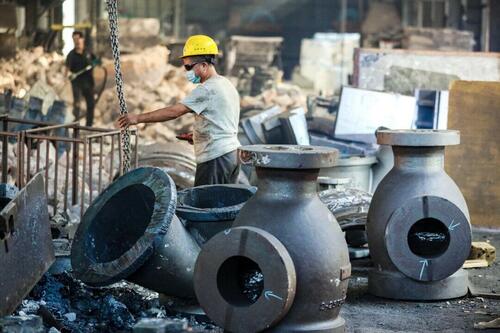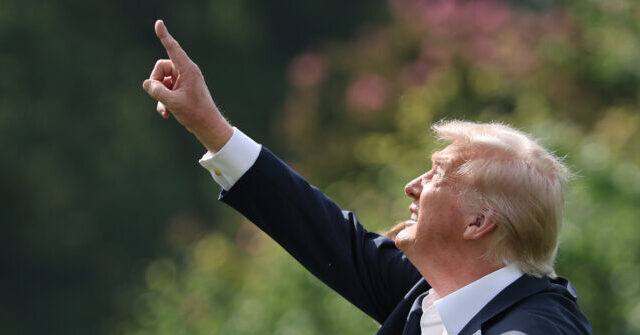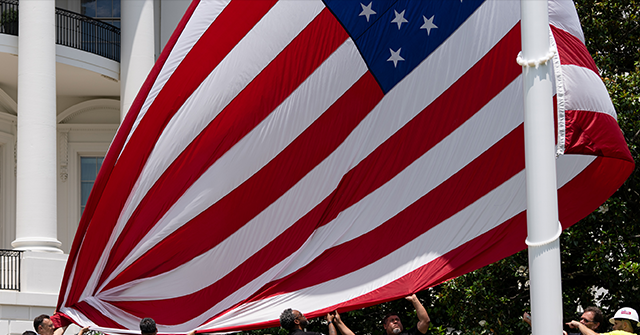China Reports Worst Producer Deflation In 2 Years Amid Ongoing Trade Uncertainty

Authored by Lily Zhou via The Epoch Times (emphasis ours),
China’s factory-gate prices in June saw the biggest fall in two years amid uncertainty in international trade and weak domestic demand.
According to figures released on July 9 by China’s National Bureau of Statistics, the producer price index for industrial products in June fell by 3.6 percent compared with the same month in 2024—worse than a 3.3 percent drop in May, and the biggest annual decline since July 2023.
The month’s purchasing price index for industrial products fell by 4.3 percent year over year, bigger than the 3.6 percent drop in May, and the sharpest decline since August 2023.
According to Dong Lijuan, statistician at the National Bureau of Statistics, the producer price index deflation in June was driven by cheaper energy prices, uncertainties in international trade, and hot and wet weather that drove down the price of building materials.
Sectors that rely on exports faced more downward pressure in prices, she said.
“The prices of computers, communication equipment, and other electronic equipment in June dropped by 0.4 percent [compared to May], the prices of electrical machinery and equipment fell by 0.2 percent, and textile prices fell by 0.2 percent,” she said.
In annual terms, the prices of computers, communication equipment, and other electronic equipment fell by 2.3 percent.
China’s factory activity shrank for a third month in a row in June, albeit at a slower pace, with employment and new export orders still languishing.
“We expect demand to weaken later this year, as exports slow and the boost from fiscal support diminishes,” Zichun Huang, China economist at Capital Economics, said.
Market reaction to the data was cautious amid uncertainties in the trade war between the United States and other economies. China’s Shanghai Composite Index was up by 0.3 percent by the midday break, while Hong Kong’s benchmark Hang Seng Index traded down by 0.7 percent.
As subdued domestic demand remains a drag on China’s economy, companies have resorted to price discounts to boost sales, prompting the authorities to urge an end to the auto industry’s bruising price wars.
Highlighting the tepid consumer market, Chinese e-commerce giants Alibaba and JD.com have pledged heavy subsidies over recent months to expand aggressively into fast deliveries.
Consumer prices rose by 0.1 percent compared with the same month in 2024, following four months of deflation.
“Consumer inflation is likely to remain near zero for the rest of the year, as structural adjustment continues slowly, with consumer demand weighed by the protracted property downturn and worries over the jobs market,” Duncan Wrigley, chief China economist at Pantheon Macroeconomics, said.
He also said that trade tensions between Washington and Beijing are likely to continue despite the recent framework agreement.
“More flare-ups are likely and cooling export growth will add to downward price pressure in manufactured goods sectors,” he said.
According to supply chain technology provider Descartes, U.S. container imports from China were about 639,300 20-foot equivalent units in June, slightly up (0.4 percent) from May, but a 28.3 percent decline from June 2024.
The company said it expects that “China’s share of U.S. imports may remain under pressure through the second half of 2025,” with the upcoming expirations of U.S. tariff pauses extended to Aug. 1 and the trade truce with China on Aug. 12, and with additional U.S. tariffs on transshipped goods via Vietnam.
Reuters contributed to this report.
Loading…














